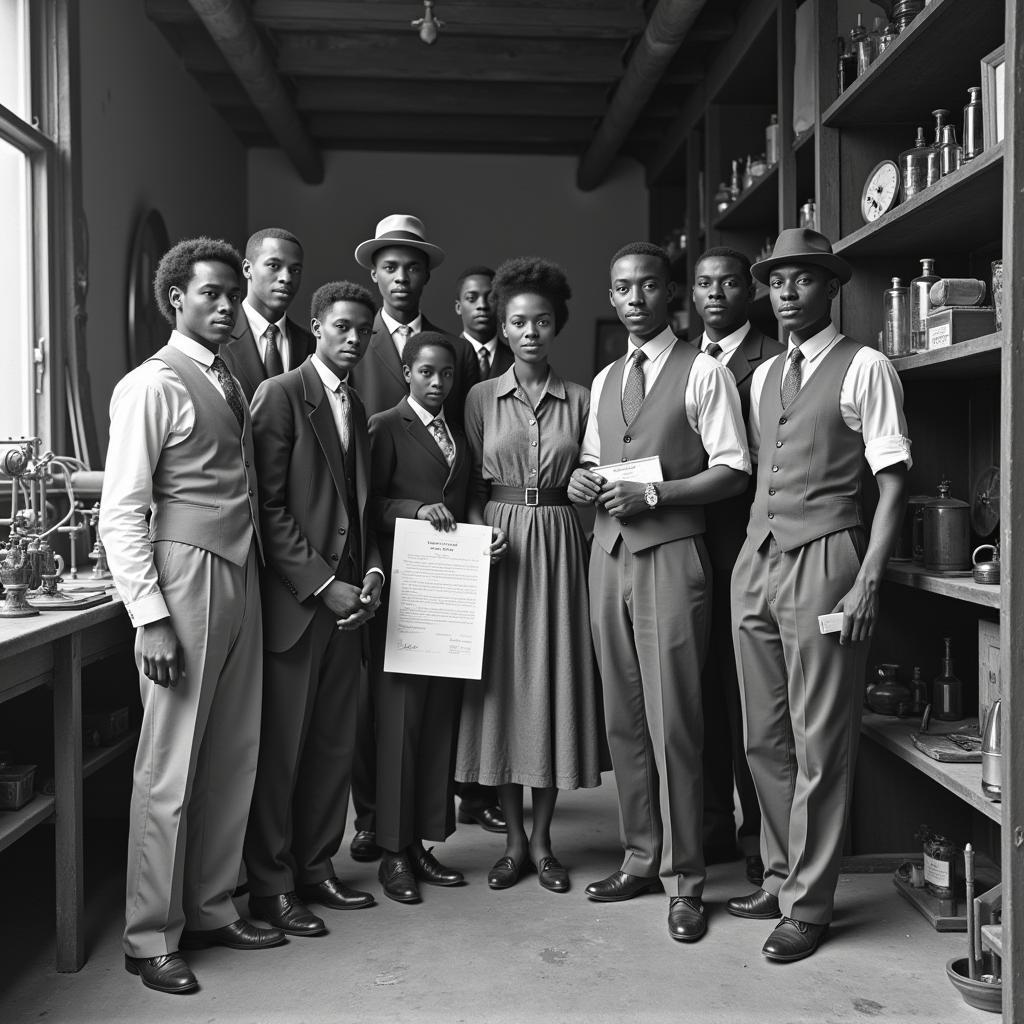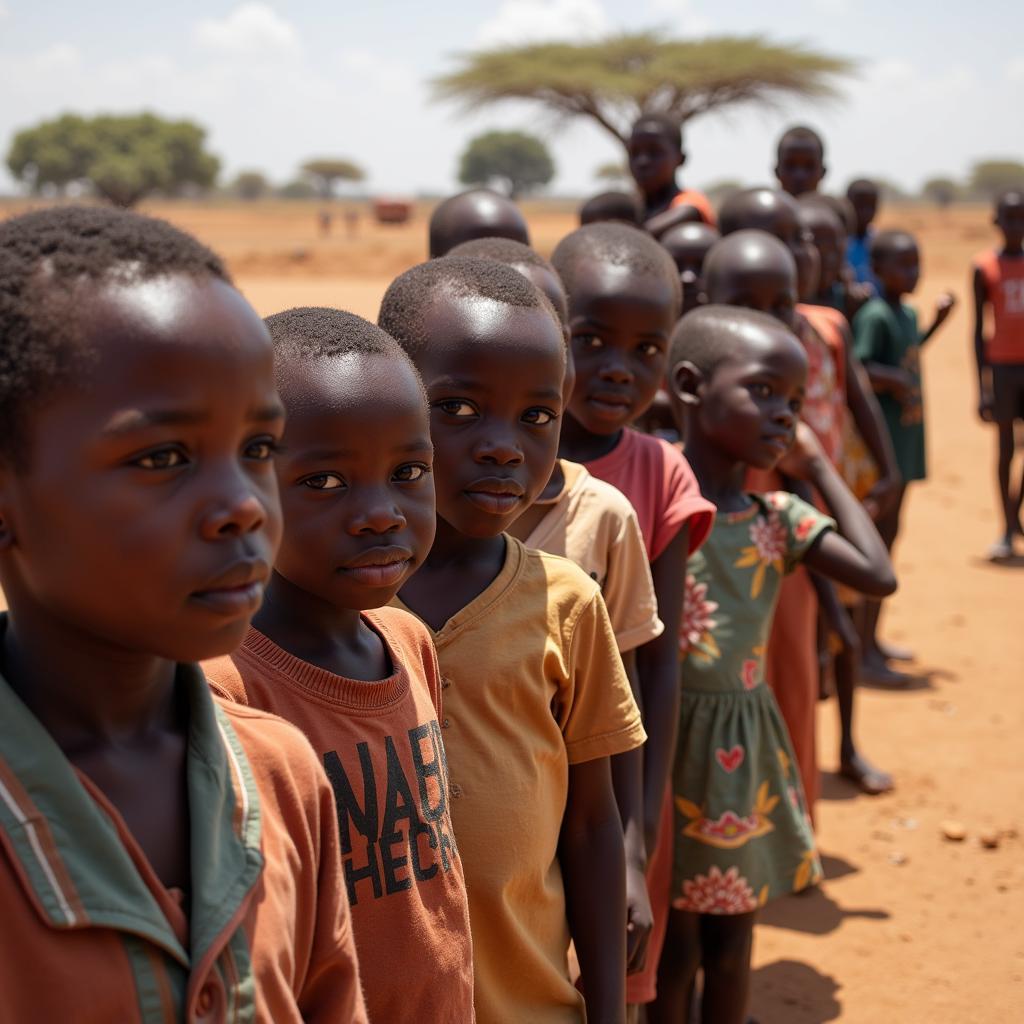Unraveling the Secrets of the African Chromosome
The term “African Chromosome” often sparks curiosity, conjuring images of a unique genetic marker distinct to the African continent. While the reality is more nuanced, exploring the genetic diversity within Africa reveals a fascinating story of human origins and migration. This article delves into the complexities of African genetics, shedding light on its significance in understanding human history and evolution. We’ll explore what “African chromosome” truly signifies and its implications for health and identity.
Decoding “African Chromosome”: What Does It Really Mean?
The phrase “African chromosome” isn’t a scientifically accurate term. It doesn’t refer to a single chromosome exclusive to African populations. Instead, it’s a colloquialism that often points towards the vast genetic diversity found within Africa. This diversity stems from Africa being the cradle of humankind, where our species originated and evolved over hundreds of thousands of years. This lengthy history has allowed for a greater accumulation of genetic variations compared to other continents.
Understanding this requires looking at haplogroups, which are groups of similar haplotypes that share a common ancestor with a single nucleotide polymorphism (SNP) mutation. These haplogroups can be traced back through maternal and paternal lineages, providing insights into ancient migration patterns and population relationships. African populations possess the greatest diversity of haplogroups, reflecting their deep ancestral roots. This diversity underscores the fact that talking about a single “African chromosome” simplifies a complex and rich genetic tapestry.
After a complete paragraph about the complexity of genetics, it’s also interesting to note the similarities found in certain genetic markers across seemingly disparate populations. For example, have you ever heard about the African gene similar in Kerala?
The Significance of African Genetic Diversity
The rich genetic diversity within Africa holds immense value for understanding human evolution, disease susceptibility, and developing personalized medicine. By studying African genomes, scientists can gain insights into the genetic basis of complex diseases, develop targeted therapies, and improve healthcare outcomes for people of African descent.
Why is African Genetic Diversity Important for Medical Research?
African genetic diversity is crucial for medical research because it helps identify genetic variations associated with disease susceptibility and drug response. This information can lead to the development of more effective treatments and preventative strategies tailored to individuals of African ancestry. It also helps understand human evolution and migrations.
What makes African genetic data so valuable? The vast genetic diversity provides a wider range of variations to study, making it more likely to pinpoint genetic factors contributing to complex diseases. This has implications not just for African populations but for all of humanity.
Tracing Human Origins Through African Chromosomes
African populations hold the key to understanding human origins and the early migrations out of Africa. By analyzing African genomes, researchers can trace the paths our ancestors took as they populated the globe.
How Does Studying African Genetics Help Us Understand Human History?
Studying African genetics allows us to reconstruct the history of human populations and their movements across the globe. It helps us understand how different groups are related and how they adapted to various environments over time. The genetic diversity within Africa reflects the continent’s long history and the complex interplay of migration, admixture, and natural selection.
The study of genetics often reveals surprising connections between seemingly different populations. For instance, did you know there’s research on an African Asian elephant hybrid? This showcases the power of genetics in uncovering hidden relationships.
Addressing Health Disparities Through Genetic Research
Understanding the genetic diversity within Africa is crucial for addressing health disparities and improving health outcomes for African populations. This knowledge can inform the development of culturally sensitive healthcare interventions and targeted therapies.
How Can Genetic Research Help Reduce Health Disparities in Africa?
Genetic research can contribute to reducing health disparities by identifying genetic factors that increase the risk of certain diseases in specific populations. This information can then be used to develop targeted interventions and public health programs. It also facilitates the development of personalized medicine approaches that take into account individual genetic variations.
One of the most impactful areas of research involves understanding specific genetic conditions and their prevalence in different populations. More information on this can be found in articles like 2 African DNA.
Conclusion
While the term “African chromosome” lacks scientific precision, it serves as a gateway to understanding the incredible genetic diversity found within Africa. This diversity, a legacy of humanity’s origins, holds profound implications for understanding human evolution, addressing health disparities, and shaping the future of personalized medicine. Further exploration of African genomes will undoubtedly unlock even more secrets about our shared past and pave the way for a healthier future for all. The complex story of the African chromosome reminds us of the interconnectedness of humanity and the importance of embracing our shared genetic heritage.
Frequently Asked Questions (FAQs)
- What is an African haplogroup?
- Why is African genetic diversity so high?
- How can I learn more about my African ancestry?
- What are the ethical considerations in African genetic research?
- How is genetic information being used to improve healthcare in Africa?
- What is the difference between a chromosome and a gene?
- How can I contribute to African genetic research projects?
You might also be interested in unique stories from Africa, such as the one about an African lady without vagina or learning about the African grey parrot male female difference. These articles offer glimpses into the diversity of life and experiences on the continent.
For further assistance, please contact us at Phone: +255768904061, Email: [email protected], or visit us at Mbarali DC Mawindi, Kangaga, Tanzania. Our customer service team is available 24/7.


